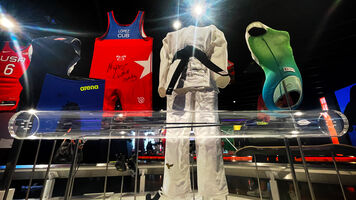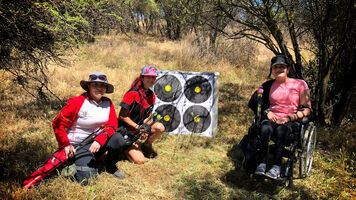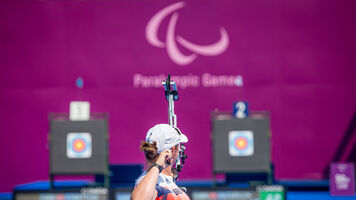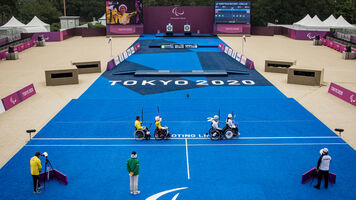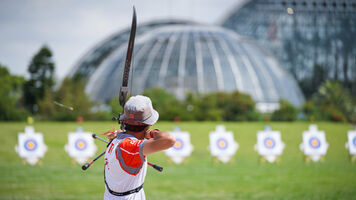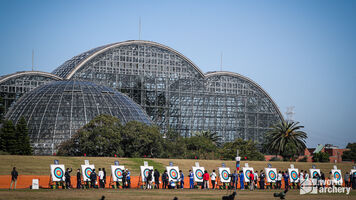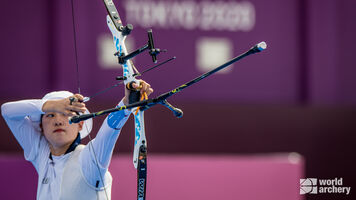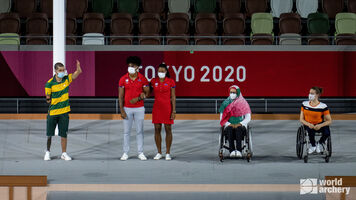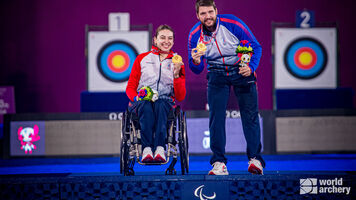How will Korea’s seclusion affect its performance in Tokyo?

It’s been the enduring question of the season: How will Korea’s absence on the international circuit affect its performance at the Olympics?
Archery’s leading competitive nation withdrew from all three Hyundai Archery World Cup stages ahead of the Tokyo 2020 Olympic Games due to travel restrictions caused by the COVID-19 pandemic.
The 14-day hotel quarantine in effect for travellers entering the country would also apply to any archers returning after a competition, head coach Park Chaesoon said.
Two weeks without training, the Korean Archery Association determined, would be detrimental to its larger goal of medal success in Japan.
“To be honest, I was doubting whether I’d go even the day before we flew to Guatemala,” Dutch archer Steve Wijler said of his decision to attend stage one of the international circuit back in April. “Then we arrived at the tournament, and the matches didn’t go as well as we thought they would.”
“I wasn’t used to the stress. I wasn’t completely prepared. That’s what made me want to attend the rest of the competitions this year.”
Like Korea, the Dutch men’s team entered the season with a full quota secured for the Games in Tokyo.
The team’s participation at the world’s biggest sporting event wasn’t in jeopardy. Their attendance on the circuit wasn’t required in order to receive an invite to Japan.
But unlike Korea – as well as Chinese Taipei, China and Japan – the Netherlands decided that travelling between countries amid the pandemic was a worthy pursuit in the name of competition experience.
Its archers, like every participant on the competition circuit, adhered to the necessary precautions required to travel responsibly, of course. But in a period of uncertainty, boarding flights to attend events came with an assumed risk – logistical as much as anything else.
Simply training at home, they decided, wasn’t enough to sufficiently prepare for the Olympics.
“It’s not the same,” Germany’s Michelle Kroppen said. “I think we are all nervous in Germany when we shoot against each other, but internationally it is something different. It’s very good to learn from those experiences.”
Kroppen said the team was given the option to stay at home and that each archer was instructed to decide for themselves whether they wanted to attend the international events.
Even without major contenders in attendance, competing in pressurised situations away from the practice field was essential to preparing for the Olympics.
Korea, meanwhile, chose a different approach to simulating competitions.
For each Games, the Korean team builds a replica of the Olympic venue. The reproduction field allows archers to get comfortable with the colours, sights and sounds of the arena.
“We see on the internet how they built their own competition field like at the Olympics,” Kroppen said. “We don’t have the money to do that, so we try to compete at as many competitions as we can to get experience.”
Korea’s ample resources and commitment to excellence, of course, are leading contributors to its dominance in the sport.
Korean archers have claimed 23 of the 34 golds awarded in the sport since 1984, while some within the programme claim that it’s harder to make the national team than to win gold once they’re there.
“It feels like they can send… not even an A team or a B team, but they can send a D team and still have a very good team at the Olympics,” Wijler said. “That’s at least the feeling that I get from them.”
Competing among themselves, then, might be the only preparation they need to claim medals in Tokyo. Korea swept the golds at Rio in 2016, and it expects to improve on that number with the addition of the mixed team event in Japan.
The pandemic may have brought intrigue to the colour of the tournament, but Korea still remains the favourite.
“Of course, there’s something missing, but we will wait for the Koreans at the Olympics,” Kroppen said. “That’s the only thing we can do.”
“We will see if it pays off for them or if it’s better to go to competitions.”


